If you’re a woman with narrow feet, you know how difficult it can be to find running shoes that fit well and provide the support you need. The right footwear can make all the difference between a comfortable run and a painful experience. In this comprehensive guide, we’ll explore the best women’s running shoes specifically designed for narrow feet, dive into real-world experiences, and provide you with tips to help you make an informed decision. Get ready to lace up and hit the ground running!
Understanding Narrow Feet and Running Shoes
Narrow feet are typically classified as having a B width or less. This can create challenges in the search for running shoes, as many brands and styles cater to average or wide feet. A proper fit is essential for maximizing comfort and minimizing the risk of injuries such as blisters and calluses.
Why a Good Fit Matters
According to a study published in the Journal of Foot and Ankle Research, wearing improper footwear can lead to a host of foot problems, including plantar fasciitis, Achilles tendonitis, and other overuse injuries (Journal of Foot and Ankle Research, 2021). Having shoes that cater to your unique foot shape, especially for those with narrow feet, cannot be emphasized enough. A snug fit ensures your foot doesn’t slide around inside the shoe, providing the stability you need during your runs.
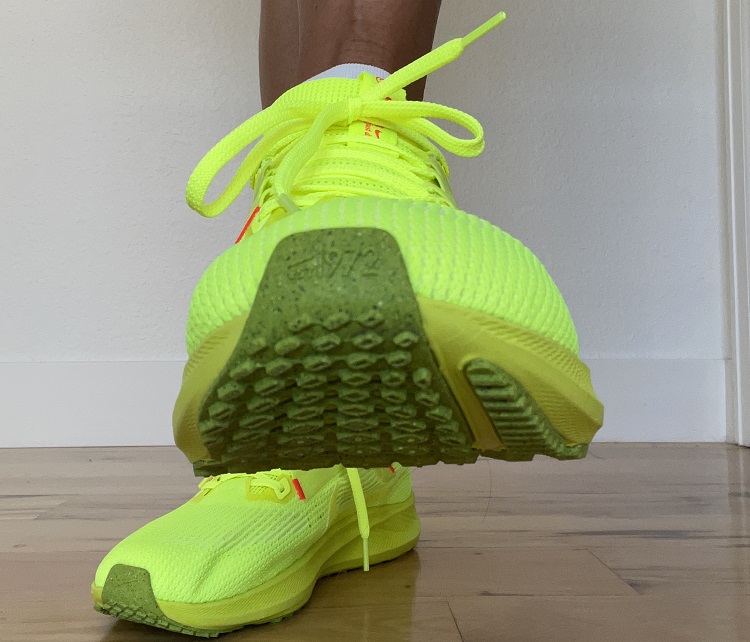
Top Picks for Women’s Running Shoes for Narrow Feet
1. Nike Air Zoom Pegasus 38
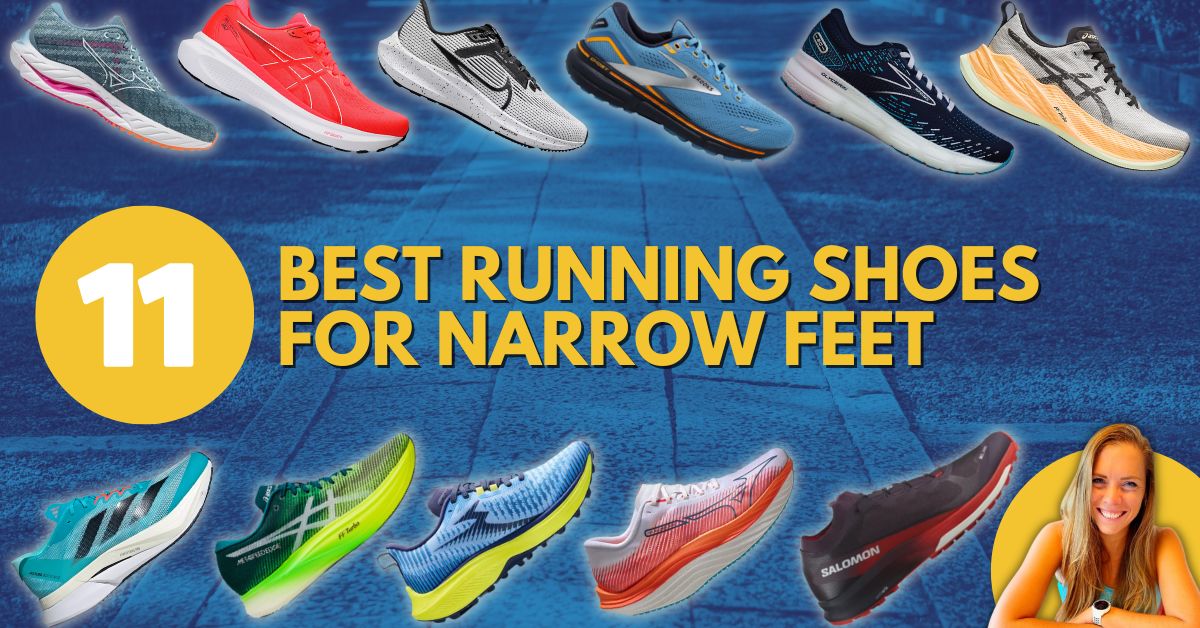
The Nike Air Zoom Pegasus 38 has established itself as one of the best all-around running shoes. It offers a snug fit that caters well to narrow feet while also providing excellent cushioning for long runs.
Key Features:
- Zoom Air units in the forefoot and heel for responsive cushioning.
- A mesh upper that adapts to the shape of your foot.
- Durable rubber outsole for traction on various surfaces.
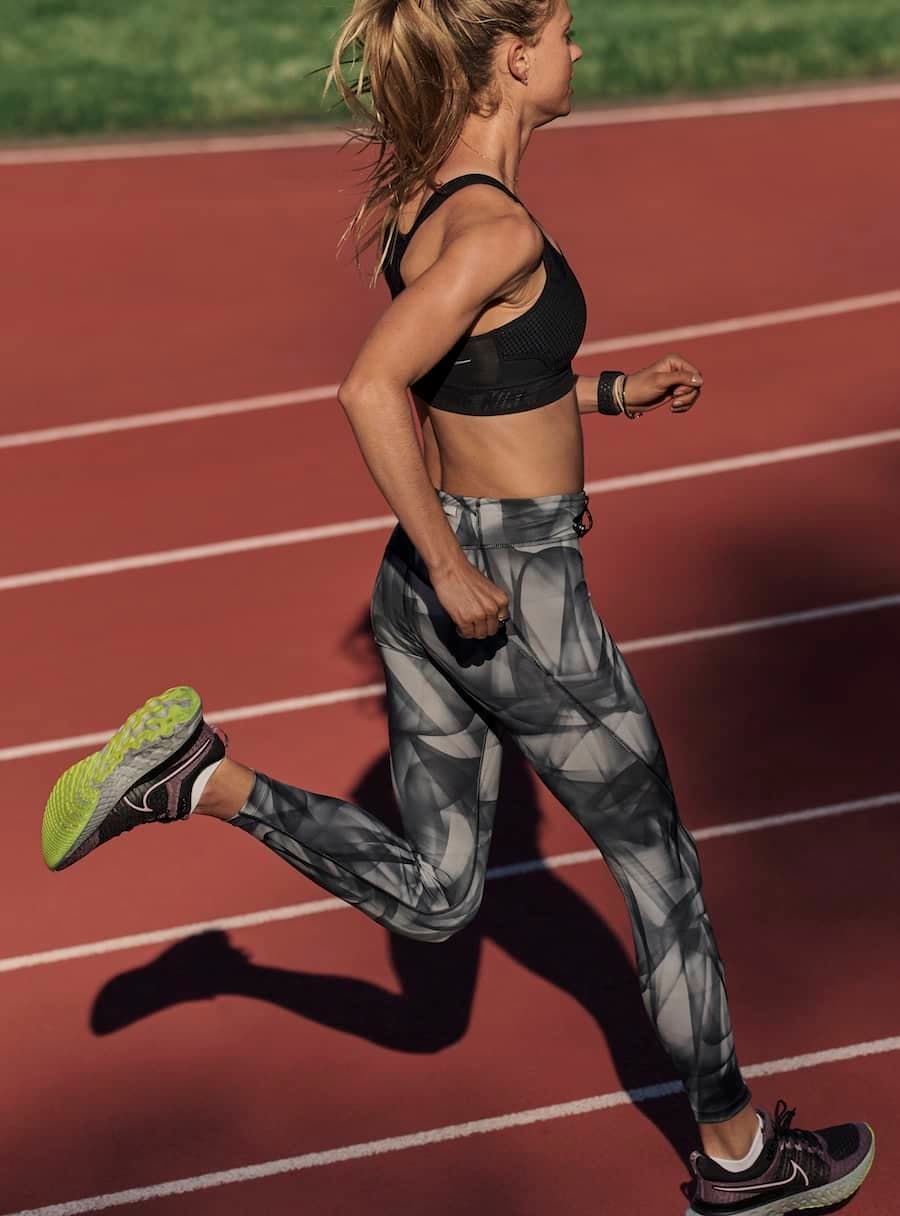
Pros:
- Great for different types of runners.
- Stylish design available in various colors.
- Good durability for long-term wear.
Cons:
- May feel a bit stiff for those used to softer shoes.
- Some users report sizing issues.
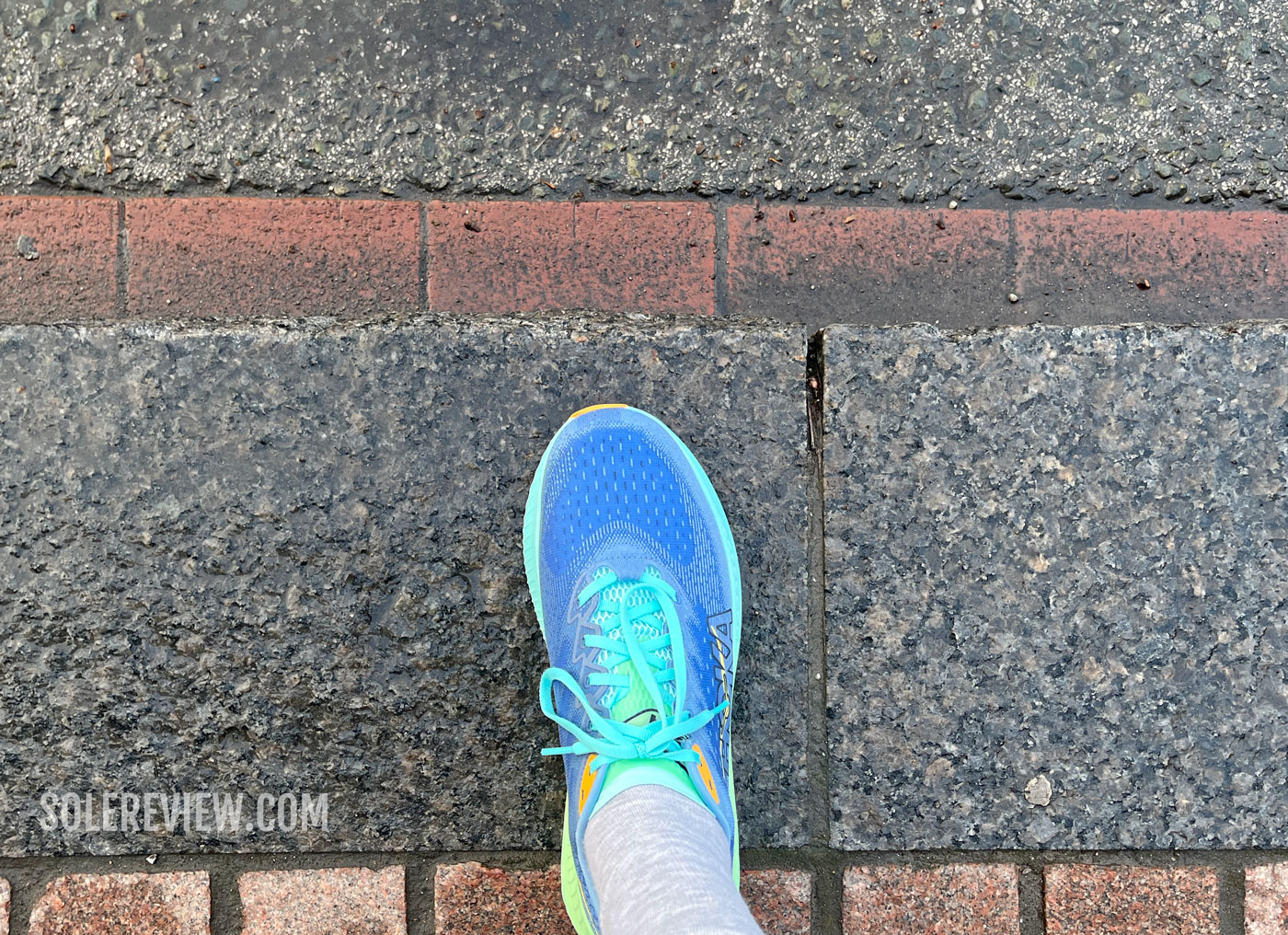
2. Brooks Ghost 14
The Brooks Ghost series is renowned for its comfort and support, making it ideal for women with narrow feet. The Ghost 14 is designed to deliver a smooth ride with excellent cushioning.
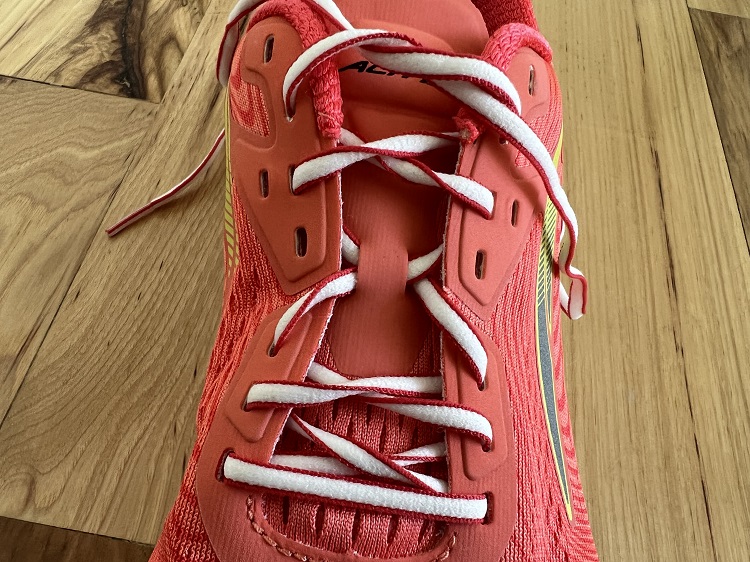
Key Features:
- BioMoGo DNA and DNA LOFT cushioning for a plush feel.
- Engineered mesh upper for breathability and a secure fit.
- Segmented crash pad for smooth transitions.
Pros:
- Exceptional cushioning and comfort.
- Great for both short distances and marathons.
- Available in different widths, including narrow.

Cons:
- A bit pricier than some other options.
- Some users find them too cushioned for speed work.
3. Saucony Kinvara 12
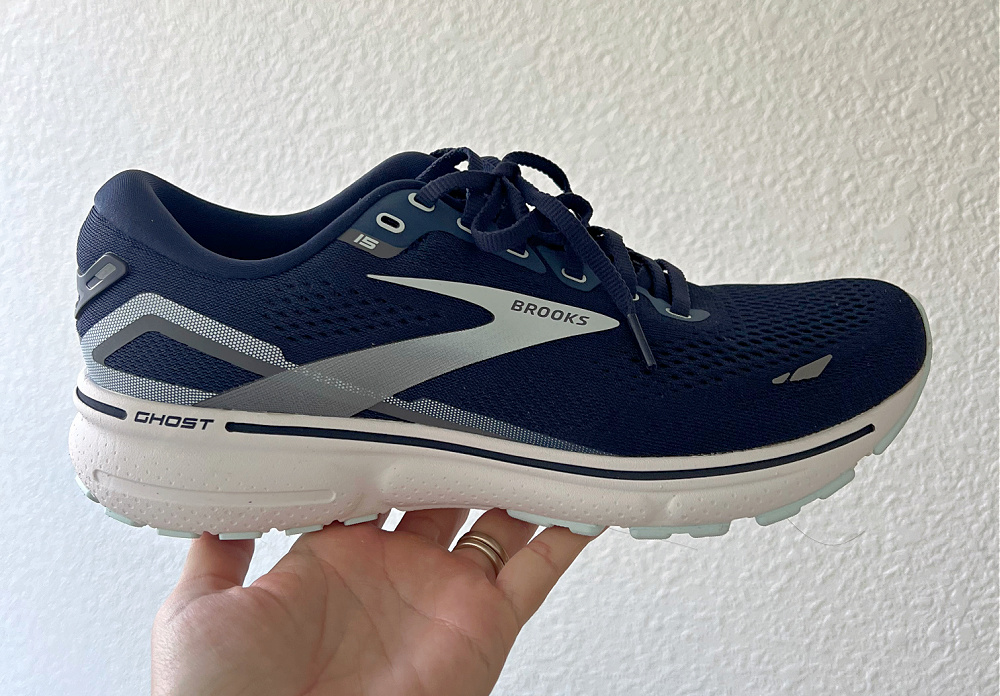
The Saucony Kinvara 12 is a favorite among minimalist runners. It’s lightweight, responsive, and specifically designed for those with narrower feet.
Key Features:
- Lightweight mesh upper for breathability.
- Everun topsole for increased energy return.
- Flexible forefoot for natural movement.
Pros:
- Promotes a natural running gait.
- Good for speed workouts and races.
- Variety of color options.
Cons:
- Lack of cushioning may not suit all runners.
- Not ideal for long distances if you prefer more support.
4. New Balance Fresh Foam 880v11
New Balance is known for its dedication to creating shoes that cater to all foot shapes, including narrow feet. The Fresh Foam 880v11 is an excellent choice for those seeking comfort and stability.
Key Features:
- Fresh Foam midsole for plush cushioning.
- Hypoknit upper for a secure, adaptable fit.
- Blown rubber outsole for a smooth ride.
Pros:
- Great support for overpronation.
- Versatile design for training and casual wear.
- Durability for high-mileage runners.
Cons:
- May feel bulky for some runners.
- Not as lightweight as other options on the list.
Case Study: Real-World Experiences
To provide additional context to our shoe recommendations, we gathered insights from several narrow-footed runners who shared their footwear experiences. Here’s what they had to say:
Runner 1: Sarah, a Recreational Runner
Sarah has been running for over five years and has struggled to find a comfortable shoe. She tried the Brooks Ghost 14 based on recommendations and said, “I love how it molds to my narrow foot. I used to get blisters all the time, but I’ve finally found a shoe I can run in without discomfort!”
Runner 2: Jessica, a Marathoner
Jessica has been running marathons for the past two years and swears by the Nike Air Zoom Pegasus 38. “The cushioning is fantastic, and I love that the shoe feels snug but not constricting. I can run 20 miles in these without any pain,” she reported.
Runner 3: Emma, a Vegan Runner
Emma prefers eco-friendly options and found the Saucony Kinvara 12 to be the perfect fit for her lifestyle. “I appreciate the lightweight design and the fact that it supports my narrow foot. Plus, it’s made with sustainable materials,” she shared.
Comparison Table: Quick Overview of Top Picks
| Model | Best For | Cushioning | Weight | Price |
|---|---|---|---|---|
| Nike Air Zoom Pegasus 38 | All-around comfort | Responsive | 10.2 oz | $130 |
| Brooks Ghost 14 | Cushioning | Plush | 10.4 oz | $140 |
| Saucony Kinvara 12 | Speed workouts | Lightweight | 7.6 oz | $110 |
| New Balance Fresh Foam 880v11 | Support | Soft | 9.4 oz | $140 |
Tips for Choosing the Best Running Shoes for Narrow Feet
Finding the perfect running shoe can be a daunting task. Here are some tips to narrow down your choices and ensure a great fit:
1. Measure Your Feet Regularly
Foot size can change over time due to factors such as age, weight changes, or pregnancy. Make sure to measure your feet regularly to ensure you’re buying the correct size.
2. Try Shoes On in the Evening
Your feet swell throughout the day. Therefore, it’s advisable to try on shoes in the evening when your feet are at their largest. This helps ensure a comfortable fit during your runs.
3. Pay Attention to the Fit
When trying shoes, make sure there’s enough room in the toe box, but the heel should feel snug. You shouldn’t experience any slipping or rubbing.
4. Read Reviews and Get Recommendations
Seek out reviews from other runners with similar foot shapes. Online communities and forums can provide invaluable insights into shoe performance.
5. Consider Custom Inserts
If you still struggle with fit, consider investing in custom insoles. They can provide additional arch support and help secure your foot within the shoe.
FAQs about Women’s Running Shoes for Narrow Feet
1. What are the best brands for narrow women’s running shoes?
The best brands for narrow women’s running shoes include Brooks, Saucony, Asics, and New Balance. They often offer specific models in narrow widths, ensuring a better fit for those with slimmer feet.
2. Are running shoes for narrow feet more expensive?
Generally, the price of running shoes varies by model and manufacturer rather than width. However, premium brands often charge more for their specialized technologies and materials, which may include narrow options.
3. Can I wear regular shoes if I have narrow feet?
While you can wear regular shoes, they may not provide the necessary support and comfort that specialized running shoes can offer. It’s advisable to select footwear that accommodates your unique foot shape.
4. How do I know if I need a narrow shoe?
If you often experience discomfort, blisters, or instability during your runs, it may be an indication that you need a narrower shoe. A professional fitting at a specialty running store can help determine your exact requirement.
5. Are there any specific features to look for in running shoes for narrow feet?
Look for adjustable lacing systems, snug heel cups, and a secure fit in the toe box. Breathable materials can also help maintain comfort over long distances.
6. How often should I replace my running shoes?
Most running shoes should be replaced every 300 to 500 miles, depending on the shoe’s construction and your running style. Keep an eye out for signs of wear, like a flattened midsole or worn-out tread.
7. Can I find stylish running shoes for narrow feet?
Absolutely! Many brands now offer stylish designs in their running shoe lines, allowing you to look good while enjoying superior performance. Options from brands like Nike and Adidas often combine fashion with function.
8. Should I buy running shoes online or in-store?
While buying shoes online offers convenience, trying them on in-store provides the best chance for a proper fit. If you do order online, ensure the retailer has a good return policy.
9. What types of runners can benefit from narrow-fit shoes?
Narrow-fit shoes can benefit a variety of runners, including those with naturally narrow feet, those who often experience foot slippage in standard sizes, and anyone who prefers a more secure fit.
10. Are there wide options available for narrow shoes?
Some brands offer width options that cater to narrow feet. When selecting a shoe, check the brand’s width specifications to find the perfect match for your foot shape.
11. How can I improve the fit of my shoes if they are still too loose?
If your shoes are slightly loose, consider using thicker socks or heel grips to secure your foot better. Also, certain lacing techniques can help create a snugger fit.
Conclusion: Lace Up for Your Best Run Yet
Finding the perfect running shoes for narrow feet doesn’t have to be a daunting task. By exploring the options listed in this guide, combined with your personal preferences and fit considerations, you’re not just investing in footwear; you’re investing in your running experience. Comfortable feet lead to happier, healthier runs.
Whether you choose the Nike Air Zoom Pegasus 38 for its responsive cushioning or the Brooks Ghost 14 for its plush support, you’re sure to find a shoe that meets your needs. Happy running!
For further information on foot health and injury prevention, check out this study on running injuries.